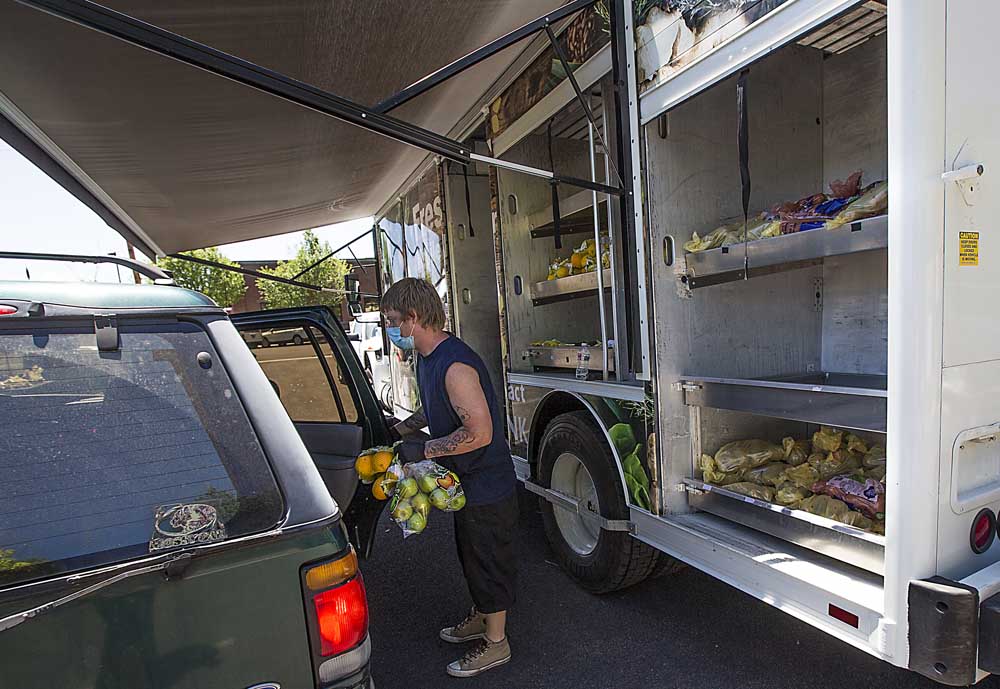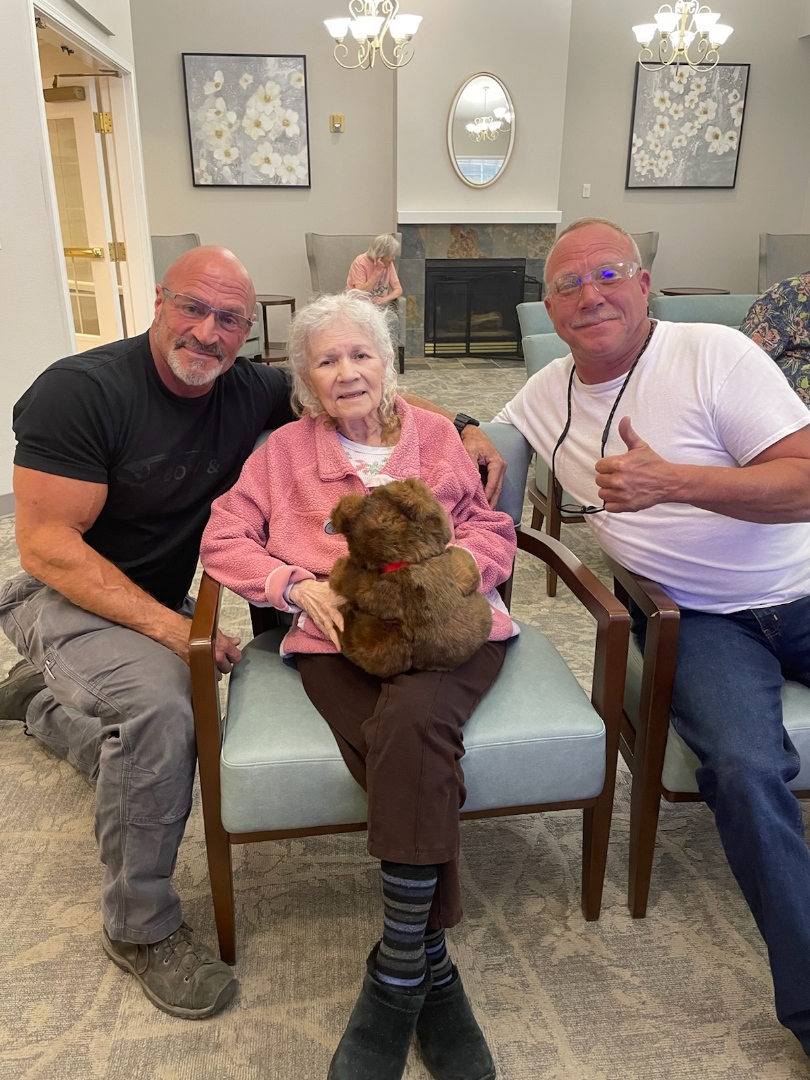Push to ban all flavored nicotine vaping products in Oregon moves to Legislature
Published 2:31 pm Sunday, February 2, 2020

- Stock image
The Legislature will become the next front in the battle to ban all flavored nicotine vaping products in Oregon now that the governor’s attempt at a temporary ban has failed.
Sen. Laurie Monnes Anderson is making another try at what, for her, has become a cause since she was a nurse at Oregon City High School in the 1980s and helped students try to quit smoking cigarettes.
She said she saw how cigarettes controlled students even when they wanted to quit. Preventing a new generation of kids from getting hooked on nicotine is one of her top priorities for the 35-day session that starts Monday.
“Once you’re addicted, you’re always addicted,” she said.
Monnes Anderson’s bill would bar the sale of all “flavored inhalant delivery system products,” meaning any nicotine vape liquid that tastes like anything except tobacco. Violators would be fined up to $5,000 per violation. The ban wouldn’t include cannabis vapes or products approved by federal regulators for helping people stop smoking.
That proposal and another one in the Oregon House that would ban internet, mail and telephone sales of vape products are part of a concerted local, state and federal effort to target the explosion of teenage vaping.
Last year, more than 1 in 5 Oregon 11th graders said they had vaped a nicotine product in the last 30 days, an Oregon Health Authority survey found, a 66% jump from 2017.
The vaping industry will fight the bill, even as it fought and beat Gov. Kate Brown’s 180-day ban in October.
That attempted ban was part of the executive order the governor signed in the wake of Oregon’s second death in the vaping-related lung illness epidemic.
Most of the lung illnesses so far are connected to black market vape oils with THC, the chemical in marijuana that gets people high. Federal health officials say vitamin E acetate, a chemical used to cut these products to sell more of them, is very likely the leading culprit in the epidemic.
There are also some victims who appear to have vaped only nicotine products. It’s not yet clear what chemicals exactly may have sickened them.
The calls to regulate vaping — in particular for young people — predate the lung disease outbreak. Critics say the widespread availability of vape products, especially those with flavors like mango and mint, entices teens.
“This is a moral issue,” said Monnes Anderson, a four-term lawmaker from Gresham who tried to pass similar legislation in 2015.
This time, she said she likes her bill’s chances to successfully compete with a slew of other pressing issues during the short legislative session. She’s chair of the Senate Committee on Health Care and has a partner on her bill from the other side of the aisle, Rep. Cheri Helt, R-Bend.
Helt, a first-term lawmaker who served on the Bend-La Pine School Board, said vaping was such a serious issue that teachers asked for a special restroom design at the new high school to allow them to detect the smell of vaping fumes when passing by.
She said that all vaping flavors must be banned to ensure kids stay off nicotine — no exceptions.
“I don’t think we can legislate by the type of delivery method,” Helt said. “We need to legislate by the outcome we are trying to accomplish.”
A fine line
But opposition is lining up from the state vaping industry.
Store owners say the bill will destroy their businesses. A ban also risks sending people back to smoking cigarettes, they say. Smaller measures would strike the right balance between industry well-being, consumer needs and kid safety rather than an all-out ban, they argue.
A customer visiting Vape Spot, a shop in Portland, typifies the warnings.
Mary Leslie of Seattle said she quit smoking cigarettes and switched to vaping last summer. When Washington banned flavored vape products, she said she tried a tobacco-flavored one.
“It was just so gross,” said Leslie, 35. “It made me nauseous.”
Having no good options, she quit nicotine altogether. But she has smoked cigarettes twice while out drinking with friends, she said, and that concerns her.
The fear of slipping back is part of what brought her to Vape Spot this past week while on a work trip to Oregon. She bought a small bottle of “Cool Blue Razz” vape juice. E-cigarette vapor has fewer harmful chemicals than cigarette smoke, according to the U.S. Centers for Disease Control and Prevention.
Jason Weber remembers switching to vaping nine years ago — he settled on a flavor called “black honey tobacco” that got him off of the Marlboro Reds he smoked. Weber now owns two vape stores in Roseburg and is on the board of the Oregon Vapor Trade Association.
As owner of Smokeless Solutions by Vape Crusaders, Weber sued the state after the governor’s ban on flavored nicotine products went into effect. Within days, a judge put the ban on hold. The state suspended the ban altogether earlier this month and the judge dismissed the case.
“It was exciting,” Weber said. “But we were under no false hope that that was it. We knew that legislation was coming.”
The Governor’s Office said in a statement that Brown believes the threat of vaping to general health and to young people calls for long-term solutions. The office is still working to understand the full impact of the flavor ban bill, spokesman Charles Boyle said in an email.
“Gov. Brown appreciates the efforts of the bill sponsors in bringing forward their ideas for how Oregon can strengthen state statutes with respect to vaping,” Boyle wrote.
Brown will consider the findings of the task force she created as part of her executive order. The group of about two dozen experts, called the Vaping Public Health Work Group, is analyzing the evidence surrounding vaping-related lung injuries and making policy recommendations to her by June 1.
‘It’s not enough’
Weber said he has met with Monnes Anderson and other lawmakers to plead his case – that he has helped adults quit smoking.
He has asked for smaller changes, such as requiring age verification technology at stores to make it harder to sell to people under 21 — the current legal minimum age to buy nicotine products — and putting in place three-strike policies to deter such sales.
He also has asked the state to wait and see whether a federal ban will succeed.
Starting Feb. 6, the U.S. Food and Drug Administration won’t allow making or selling flavored cartridge-based e-cigarettes in the United States — except for menthol and tobacco flavors.
“For some reason, our state is saying that it’s not enough,” Weber said.
The federal ban applies to products like Juul’s mango and mint flavors, but not to the tank-based systems that Weber sells. The ban also does not apply to disposable vape products.
Stores like Weber’s and others offer dozens of flavors of vape juice, which customers pour into tanks that allow for customization of heat and intensity. They’re akin to connoisseur shops, like cigar shops for tobacco, where people can browse broad selections of flavors. The devices that use the flavors are generally much heavier and larger than the wildly popular devices like Juul.
Health experts have attributed the recent rise in youth vaping addiction primarily to Juul and similar cartridge-based products, which are relatively cheap, easy to conceal and can contain extraordinarily high concentrations of nicotine — about a pack’s worth of nicotine per Juul pod, for example.
Monnes Anderson said she’s not moved by the industry’s arguments.
She plans to add a layer of regulation to her bill in an amendment that would create a statewide tobacco retailer licensing system. That would allow the state to track and license every store that sells nicotine products.
Right now, only some local governments, like Multnomah County, have that kind of oversight, vital to enforcing nicotine-related laws.
“I don’t have much sympathy for the industry, like the tobacco industry and vaping industry, that is not looking to the health, the overall health outcomes that people will have once they become addicted to their products,” Monnes Anderson said.
’Something that makes sense’
But there is one bill that lawmakers and pro-vaping lobbyists like Weber can agree on: banning online nicotine vape sales.
Rep. Pam Marsh, D.-Ashland, said she got the idea after a group of Ashland High School students told her that’s how their peers get their vapes.
“It was the fact that the students were observing this among their peers. They know best what’s happening to their age group,” Marsh said.
The bill would simply add vape products to existing laws that ban internet and telephone sales of cigarettes and smokeless tobacco.
The online sales ban, Marsh said, would not apply to retailers like Weber.
Weber said he and the Oregon vaping association is on board with the proposal as a way to curb minors’ access to vape products.
“I think at least they’re looking at the problem,” Weber said. “They’re trying to do something that makes more sense.”






